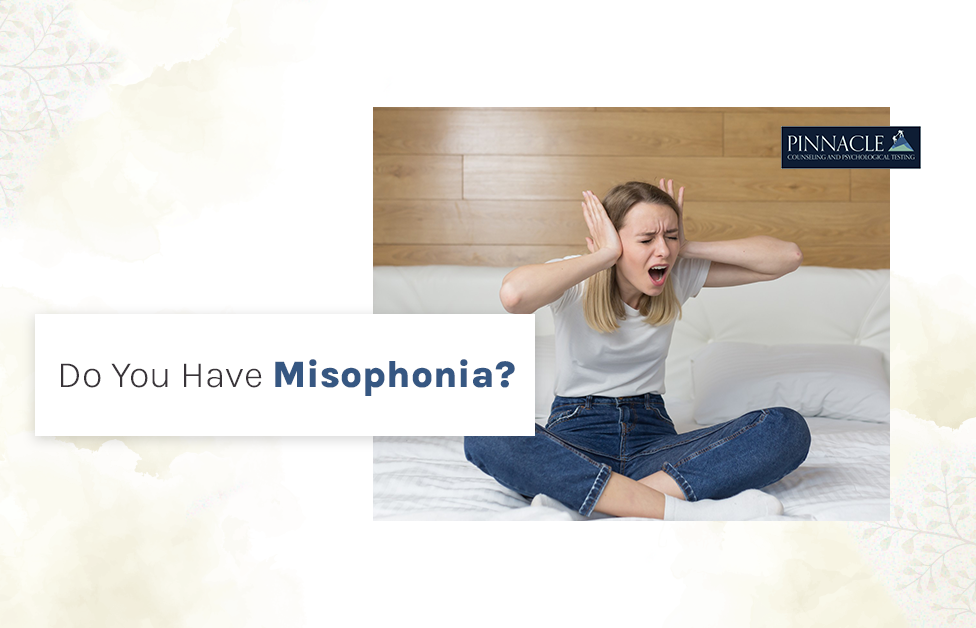
Does the sound of someone chewing or breathing aggravate you? If so, you may have
misophonia. Misophonia is a condition where specific sounds provoke emotional or
physical reactions that may seem disproportionate to the situation. Recent studies in
Europe have shown that misophonia has genetic links to mental health disorders such
as anxiety, depression, and PTSD (Koumoundouros, 2024). To better understand this,
let’s take a step back and discuss what misophonia is and how it presents itself in
individuals.
People affected by misophonia experience strong emotional reactions to common
sounds (Cartreine, 2019). These sounds, often made by others, are typically overlooked
in daily life. To illustrate the experience of someone with misophonia, imagine working in
an office setting. As the day begins, employees type on keyboards, click pens, take
notes, and snack in the breakroom. Perhaps your cubicle mate, Bobby, is breathing
loudly (he’s a mouth breather). For someone with misophonia, these sounds can trigger
intense feelings of anger, anxiety, or discomfort, often leading to avoidance. In some
cases, such sounds can even activate the fight-or-flight response (good luck getting me
to work in person when Sharon keeps crunching chips in the break room!).
For most people, these are trivial sounds that go unnoticed, but for those with
misophonia, they can elicit extreme emotions and lead to avoidance of such situations
altogether.
So, you might be asking yourself, “How common is misophonia worldwide?” Research
on the prevalence and development of misophonia is still limited (Koumoundouros,
2024). This may partly be due to individuals not disclosing their experiences or seeking
treatment. Additionally, there’s a connection between internalized distress and
personality traits associated with loneliness, worry, guilt, and neuroticism. Recent
studies in Europe have begun to explore the genetic connections between misophonia
and conditions like anxiety, depression, and PTSD. As a result, it appears that many
more individuals experience symptoms of misophonia than previously thought. Genes
commonly associated with PTSD are linked to an increased likelihood of developing
misophonia. This correlation provides better insight into the risk factors for developing
misophonia and highlights potential similarities in treatment approaches.
References
Harvard Health Publishing. (2017, April 21). Misophonia: When sounds really make you
crazy. Harvard Health Blog.
https://www.health.harvard.edu/blog/misophonia-sounds-really-make-crazy-2017042111
534
Science Alert. (2023, February 1). Misophonia has genetic links to anxiety and
depression, study shows.
https://www.sciencealert.com/misophonia-has-genetic-links-to-anxiety-and-depression-s
tudy-shows


